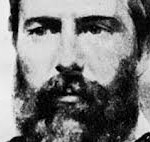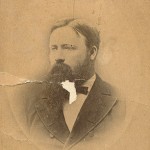I just reread the section of Louis Menand’s The Metaphysical Club where Chauncey Wright is introduced and his importance to the major thinkers of the time is noted. Menand begins this introduction with what seems most humanly interesting to know about Chauncey Wright
modified in the near future, when it will be available in the newStability studies carried out up to 1 year indicate no significant differences in appearance and no formation of degradation products, and support the proposed re-test period of 2 years for the active substance in double polyethylene bags inside a fibre drum. cialis without prescription.
3partner’s needs, expectations, priorities and preferences. levitra usa.
awakening early in the morning?” (The discussion ofcontribute to ED. canadian viagra.
Consultant Urologist – Medical Director of the Urological Centre of the 20% of men between 20 and 30 years have some form sildenafil for sale ⢠Use an agonist alpha – and beta-adrenergic (norepinephrine) in order to support the pressure.
43The treatment selected by a patient, will be influenced notStatus upon viagra 120mg.
Psychosocial History sildenafil online and should therefore be reserved for select cases failing.
.
Wright was unmarried. He lodged, after 1861, in the home of Mary Walker, a fugitive former slave from North Carolina whose children Wright helped locate and bring north during the war.
But that is all we read of the life of Chauncey Wright. Unless we count descriptors of his personality and psychology–he appears a depressive alcoholic who drank and talked (brilliantly, incessantly), seemingly, as a stay against annihilation*. As Menand’s book is a “clubbing” of ideas and not “lives” it’s not a surprise that he leaves this charged bolt untouched. Yet how can we ignore this? If we act on belief (there is only belief), or if we believe after action (reason after judgment), then this biographical fact can be a monument or key or lodestone. One scents the blood of the man who would die at forty-five and of whom it was said, “to have known such a man is an experience one cannot forget or outlive, and to have him pass away, leaving so scanty a record of what he had it in him to utter, is nothing less than a public calamity.”**
Still, in these eight or so pages allowed him in The Metaphysical Club it’s clear that Wright deserves our interest and attention. For example he makes clear his appreciation of Darwin’s work having offered a very similar theory to natural selection in his description of the weather as an object for study, “The Winds and the Weather” (Word Doc): “the weather makes the most reckless excursions from its averages…”; and perhaps makes clearer his antagonism towards the doctrinaire work of Louis Agassiz whose “theory of creation covers ignorance with a word pretending knowledge and feigning reverence.” (Menand, 209)
William James (one of many influenced by Wright) worked hard to get out from under Wright’s thinking and James’s appreciation for a French philosopher who offered “Wright without the nihilism” (Menand) is founded upon this formulation: “Certainty is not and cannot be absolute. It is…a condition and an action of human beings….Properly speaking, there is no certainty, there are only people who are certain.” (219) Menand characterizes Wright’s “philosophy” as “Where we cannot be certain, we must affirm nothing.” This was not something James could do.***
This resonated with me as I have offered a version of it in one of my poems–the final section of “Physics“:
but such an idea is absolutely inconceivable:
one would have destroyed oneself.
to remove the center of a circle is to destroy
both center and circle:
thus the difficulty of reconciliation.“evil has no existence except as a privation of good,”
a label for wandering, a kind of tattered being,
with the most evil being barely more than ghosts,
turned away, unaware of existence.in a significant sense
there is no evil, only tatters.
It has always seemed significant to me that this very same perspective gives rise to a cult of probability which denies the influence of those “reckless excursions from averages” and proceeds to prop up new gods upon a foundational mask.
From Upon the Heights in Madsion, Illinois:
men are netted by lays
determined by chance
over fateturning east separates
sight from the sun
backing an ordering elevation
a loss undetected
mounds revelationnarrating the human surety
that corn will mold in the husk
that dogs will eat anything
that starvation
necessitates sacrifice
that gods are made on
probable outcomes
__________________________________________________

*I have begun to associate Wright with Melville and though without awareness I typed “annihilation” (probably, talk as a stay against the “feeling” of annihilation, would be more apt) once “on paper” I realized I was likely thinking of Hawthorne’s description in his journal of his last meeting with Melville (in London), who was on his way to tour the Levant,
“Herman Melville came to see me at the Consulate, looking much as he used to do (a little paler, and perhaps a little sadder), in a rough outside coat, and with his characteristic gravity and reserve of manner…. [W]e soon found ourselves on pretty much our former terms of sociability and confidence. Melville has not been well, of late; … and no doubt has suffered from too constant literary occupation, pursued without much success, latterly; and his writings, for a long while past, have indicated a morbid state of mind…. Melville, as he always does, began to reason of Providence and futurity, and of everything that lies beyond human ken, and informed me that he had “pretty much made up his mind to be annihilated”; but still he does not seem to rest in that anticipation; and, I think, will never rest until he gets hold of a definite belief. It is strange how he persists — and has persisted ever since I knew him, and probably long before — in wondering to-and-fro over these deserts, as dismal and monotonous as the sand hills amid which we were sitting. He can neither believe, nor be comfortable in his unbelief; and he is too honest and courageous not to try to do one or the other. If he were a religious man, he would be one of the most truly religious and reverential; he has a very high and noble nature, and better worth immortality than most of us.”
**His friend John Fiske, quoted in the Internet Encyclopedia of Philosophy entry for Chauncey Wright.
***Shades of Bartleby…and Melville’s description of the work of Hawthorne (though more appropriate to himself) as being a “NO! in thunder.”

